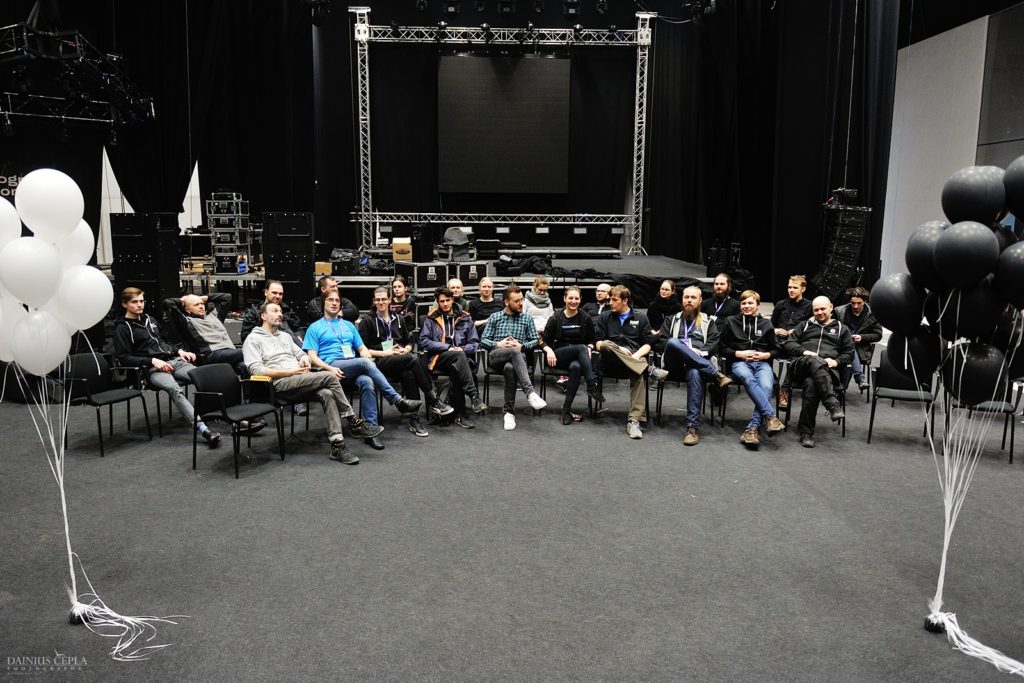
Do I Still Know How To Do My Job?
My last mixing FOH for a real audience was January 8, 2020. For some reason I feel a necessity to write down a year as well, being afraid that if this stand-still stays longer than we all hope I’ll still be able to track down to my last real show. I only wish we won’t get in the scenario of those memes where there’s a senior person being led by a young kid saying “my 2020 gigs were rescheduled again” and the youngster answers “let it go granny, it’s 2063 already”.
So, it’s over a year at this point without being surrounded by live music, audience cheers, and the feeling of those butterflies in a stomach two minutes before a show starts. I had rehearsals with my supposed-to-be cast on a cruise ship through mid-February to mid-March, so I feel like I was still in the right vibe. And after that – that’s it.
The slow sway of a vaccination process gives some positive thoughts that we’re moving in the right direction and one day to be able to get back to our jobs, Here comes the scariest part. Do I still know how to do my job?
I was talking with other artists and randomly we started talking about skill loss when not practicing. An artist that I genuinely admire, shared his experience that after not painting for a year it was very frustrating to take a brush in a hand again, and then it took time to get back the same technique. A scriptwriter told me that not writing a script for some time has become a struggle to get those creative juices going again. Then I thought about myself, as an ex-drummer. When our high school band split up and I stopped drumming for good. A couple of years later I got a job as a backline tech and one day I got asked to do a drum soundcheck. Kick – fine. Snare- fine. You know how it goes. And then a guy running FOH who knew about my drummer career asked me to play something. I froze, couldn’t keep a steady 4/4 beat. So, at this point, I already know how it feels to try doing something that you knew well some time ago, but suddenly it feels so unknown. –
Let’s point out that I’m not only talking about mixing. Mixing is easy, I see live sound engineering as a complex set of skills. A lot of us, live sound engineers, didn’t have a necessity to be sharp for over a year, no 5-minute changeovers, no crew management, no immediate problem solving on the fly, no 300ft power cable ran backward, you name it. All of these skills didn’t come overnight. It took years and years going through fire and ice just not to freak out and learn how to calmly make the right decisions. Thinking about that honestly makes me worry, do I still know how to behave? Or is it just like riding a bike? Am I the only one in the industry concerned? Or will it be a slow start for everybody when live shows will get back? Is there a way to do a self-check? Or it is not necessary, because everything we knew comes back naturally once we start doing what we’ve been doing?
Can’t tell how much I appreciate those virtual product presentations, free training, and Q&A sessions. I haven’t watched that many educational videos ever in my life. But does that keep us, live sound engineers acute and prepared for the live environment? Can’t wait the day to come to find out!
 Dovile Bindokaite is currently based and working as a freelance sound engineer in Lithuania. She has an MA degree in sound engineering and started working in sound in 2012. Since 2014, she has worked in various positions in live sound including FOH, monitor engineer, sound engineer for broadcasting, RF coordinator, backline tech, stage tech, stage manager. For the past year, she was part of an audio team at Schubert Systems Group (USA). She has experience working in theatre as a sound designer and recording studios as a recording engineer.
Dovile Bindokaite is currently based and working as a freelance sound engineer in Lithuania. She has an MA degree in sound engineering and started working in sound in 2012. Since 2014, she has worked in various positions in live sound including FOH, monitor engineer, sound engineer for broadcasting, RF coordinator, backline tech, stage tech, stage manager. For the past year, she was part of an audio team at Schubert Systems Group (USA). She has experience working in theatre as a sound designer and recording studios as a recording engineer.

